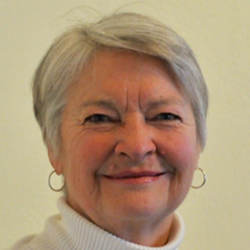
Computer science students who are expected to do actual research face a scholarly landscape that is hard to navigate, with bumpy access and uneven content, while seeking suitable peer-reviewed sources. In hopes of assisting other instructors (and students and even researchers), I present, adapted, a handout that I give to the computer science ethics class. I have removed the notes that explain how to obtain articles through our own library, but such instructions are necessary, as it is no longer easy to find a recent newspaper article, for instance, in the stacks.
Concerned that students no longer read publications that uphold standards of objectivity, even should those publications be ready to hand, I start with an article from such a publication, choosing a somewhat sensational story, rich in moral turpitude. For example, "The Follower Factory" [Confessore] describes a riot of dubious behavior arising from Internet affordances. (Many other readings follow; the particulars are not given here.)
The page of suggested resources that I give the class is like the "libguide" for individual subjects, computer science among them, offered by many institutional libraries, which conventionally list the databases, magazines, and organizations pertinent, but are short on, well, guidance, meaning advice and assessment. In fact, they have the look of auto-populated enumerations, which may not inspire the quality of inquiry that we seek. Most papers in my class require a peer-reviewed reference from the "Scholarly" category, but for other classes, I sometimes modify this to allow the "Authoritative" cateogry.
POPULAR
These publications offer solid and interesting coverage of technology, but with a scope broader than computing, and occasional items that touch on the ethics of computing.
In books, to find an area that interests you, try browsing the library stacks in the computer science call numbers, QA 75 and QA 76.
Wall Street Journal Tech: https://www.wsj.com/news/technology
New York Times Technology section: https://www.nytimes.com/section/technology
You can use the ProQuest Newsstand database to reach the most current issue, or past issues, of newspapers.
Other respectable periodicals cover the tech scene, or offer special sections or articles devoted to technology:
- The National Review
- The Economist
- The Guardian (Britain)
- PBS and BBC for broadcast coverage
- WIRED magazine for tech news and observations
- Ars Technica: Digitally native (online only) at https://arstechnica.com/
AUTHORITATIVE
These publications exhibit high standards for general-appeal reporting.
- New Yorker Annals of Technology: https://www.newyorker.com/magazine/annals-of-technology
- The Atlantic Magazine Technology Section: https://www.theatlantic.com/technology/
- The Economist Technology Quarterly: https://www.economist.com/technology-quarterly/
A great deal of contemporary research and commentary is published online by research institutes. Consult those that are sponsored by universities, governments, and other public interest groups, rather than those that are hosted by businesses and commercial and industry groups. In particular, beware of "white papers" published by technology vendors, which are actually marketing. For a judgment on a source in this category, ask your instructor.
The two main professional organizations in computer science are the IEEE Computer Society and the ACM (Association for Computing Machinery). Each organization publishes both general and specialized computing journals plus a computing newsletter for members, IEEE Computer (www.computer.org/csdl/magazines/co) and the Communications of the ACM (cacm.acm.org). Consider a free subscripton to IEEE Edge (http://www.computer.org/computingedge), which collects and presents articles from its other publications.
SCHOLARLY
Each of the professional organizations, the ACM and IEEE, maintains a comprehensive digital library of their journals, the IEEE Computer Society at https://www.computer.org/csdl/, and the ACM at http://dl.acm.org. You have access to those libraries and all their publications through our library.
For a wide variety of references, use the ProQuest or Academic Search Premier (EBSCO) databases from the library. Search for your topic, selecting the "Full Text" and "Peer-reviewed" options in the filters on the left. All articles indexed by Web of Science are peer-reviewed. Proceedings of scholarly conferences in computer science count as peer-reviewed publications. But your best bet may be to go directly to the journals that cover the ethics of computing and browse through them:
- Ethics and Information Technology. Peer-reviewed journal from Springer. ISSN: 1388-1957, 1572-8439
- Journal of Information, Communication and Ethics in Society. Peer-reviewed journal from Emerald Publishing, available online through our library. ISSN: 1477-996X
- Philosophy and Technology. Peer-reviewed journal that offers a substantial proportion of articles on ethics. ISSN: 2210-5433, 2210-5441
- First Monday, from the University of Chicago, devoted to analysis of the Internet. Online only. ISSN: 1396-0466
- Science and Engineering Ethics. Covers computing among related technical disciplines. ISSN 1471-5546 and 1353-3452.
I invite suggestions, for either additions to, or deletions from, this list. Good resources may have been overlooked—in particular, the sources that are not obvious to the American computing community—and it is not always clear which online publications remain active. Stahl, Timmermans, and Mittelstadt [Stahl] probed the literature dealing with computing ethics a few short years ago, and remarked on the need for focused treatments and pointed conclusions. I also invite more thought and inquiry in this area.
References
[Confessore] Nicholas Confessore et al. The Follower Factory. New York Times. January 27, 2018.
[Stahl] Bernd Carsten Stahl, Job Timmermans, and Brent Daniel Mittelstadt. 2016. The ethics of computing: A survey of the computing-oriented literature. ACM Comput. Surv. 48, 4, Article 55. February 2016.
Robin K. Hill is a lecturer in the Department of Computer Science and an affiliate of both the Department of Philosophy and Religious Studies and the Wyoming Institute for Humanities Research at the University of Wyoming. She has been a member of ACM since 1978.



Join the Discussion (0)
Become a Member or Sign In to Post a Comment